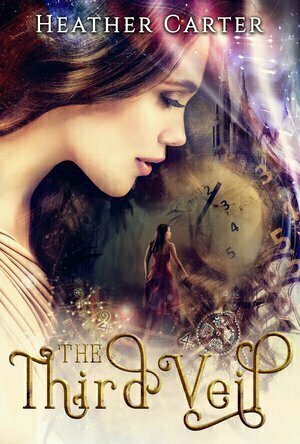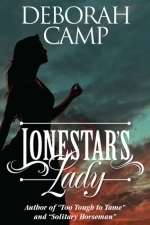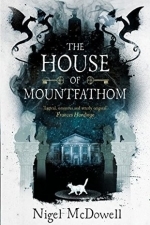Merissa (13749 KP) rated The Third Veil in Books
Jun 21, 2023
Seven is the unloved and abused daughter of the owner of a brothel and spends her days cleaning like a maid. She finds solace in Charlie, a young farmer who is her best friend and courting her quietly. But the heroine can't be happy at the beginning, now can they, so it came as no surprise when tragedy struck. Not only that but Seven is pushed into something she is wholly unprepared for. With both friends and foes looking for her, she needs to save the world. No pressure.
I found the beginning of this story to be a little slow although I understood it was doing the groundwork and building up to the big event. Once she was through the veil, it sped up and moved along nicely. There is a lot that goes on so you will need to concentrate on all the twists and turns. One thing that made this hard for me was listening to her constant monologue about how weak she was, how she couldn't do it, how she needed Draivus, etc. etc. I kept waiting for the moment when she would gain faith in herself and step up, but it never happened. I know she's supposed to be young but it just felt a little too much in the opposite direction for me.
There were parts of the story and the world that remain unclear to me but they didn't really affect my enjoyment.
A good read that I enjoyed and recommend.
** same worded review will appear elsewhere **
* A copy of this book was provided to me with no requirements for a review. I voluntarily read this book; the comments here are my honest opinion. *
Merissa
Archaeolibrarian - I Dig Good Books!
Jun 21, 2023
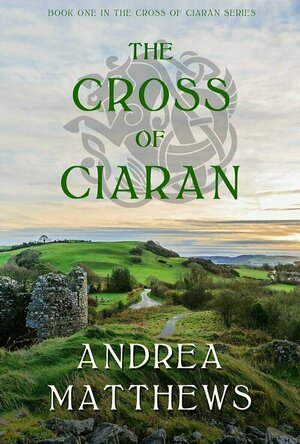
The Cross of Ciarán (The Cross of Ciarán #1)
Book
When a fifth century pagan priest is unearthed in Ireland fifteen hundred years after being...
Timeslip Historical Irish Celtic Romance
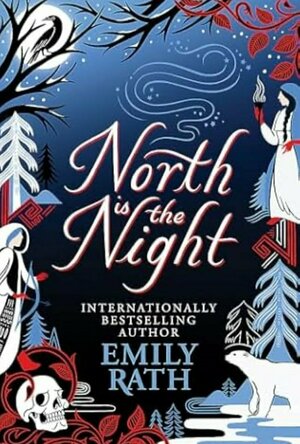
North is the Night
Book
With the dark, mythical magic of the Winternight trilogy, and the slow-burn romance of Spinning...
Historical fiction
Bob Mann (459 KP) rated Viceroy's House (2017) in Movies
Sep 29, 2021
Of course, there is little tension in this plot line since we know Pakistan was indeed founded by Muhammad Ali Jinnah (played by Denzil Smith) on August 14th 1947. (In reality, Jinnah’s victory was short lived as he died of TB the following year). The rest of India went on to be ruled by Jawaharlal Nehru (played by Tanveer Ghani). What the film does remind this generation of is the extreme cost of that partition, with riots, mass abductions and rapes, over a million estimated deaths and one of the biggest migrations of populations ever seen. (All of this is largely shown through original newsreel footage, which is effectively inter-weaved with the film).
So as an educational documentary it is useful. However, as an entertaining movie night out? Not so much. After coming out of the film we needed to buy some milk at Tesco and I was put on the spot by the checkout lady to sum-up the film: “Worthy but dull” was what I came up with, which with further time to reflect still seems a good summary.
This shouldn’t have been the case, since the film is directed by the well-respected Gurinder Chadha (“Bend it like Beckham) and boasts a stellar cast, with Bonneville supported by Gillian Anderson (“The X Files”) as Lady Mountbatten; Michael Gambon (“Harry Potter”) as General Ismay (Mountbatten’s chief of staff); Simon Callow (“Four Weddings and a Funeral”) as Radcliffe (the drawer of ‘the new map’); and Om Puri (“The Hundred Foot Journey“) as former political prisoner Ali Rahim Noor. Playing Mountbatten’s daughter is Lily Travers (“Kingsman: The Secret Service“): Virginia McKenna’s granddaughter.
But unfortunately, for me at least, the film lumbers from scene to scene, seldom engaging with me. Bonneville’s Mountbatten, whilst perfectly sound, was just a re-tread of Downton with added humidity and curry; Anderson’s (probably extremely accurate) crystal-glass English accent quickly becomes tiresome; and elsewhere a lot of the acting of the broader Indian cast is, I’m sorry to comment, rather sub-par. For me, only Om Puri, who sadly died in January, delivers an effective and moving performance as the blind father (literally) unable to see that the arranged marriage for his daughter Aalia (Huma Qureshi) is heading for trouble thanks to Mountbatten’s man-servant. And no, that isn’t a euphemism…. I’m talking about his real manservant, Jeet Kumar (Manish Dayal)!!
As an aside, the late Puri (probably most famous in western cinema for “East is East”) has made over 270 feature films in his prolific career, over and above his many appearances on Indian TV. And he still has another 6 films to be released! May he rest in peace.
Probably realising that the historical plot is not enough to sustain the film, the screenwriters Paul Mayeda Berges (“Bend it like Beckham”), Moira Buffini (“Tamara Drewe”) and Gurinder Chadha try to add more substance with the illicit romance between the Hindu Jeet and the Muslim Aalia. Unfortunately this is clunky at best, with an incessant 30 minutes-worth of longing looks before anything of substance happens. Even the “Lion“-style denouement (also with a railway train connection) is unconvincing.
After that, the film just tends to peter out, with a ‘real-life photograph’ segue delivering a rather tenuous connection between a character not even featured in the film and the director!
Mrs. Chadha has clearly corralled an army of extras to deliver some of the scenes in the film, in the hope of delivering a historical epic of the scale of Attenborough’s “Gandhi”. For me, she misses by a considerable margin. But that’s just my view….. if you like historical dramas, its a film you might enjoy: as the great man himself said “Honest disagreement is often a good sign of progress”.
Debbiereadsbook (1650 KP) rated Lonestar's Lady in Books
Dec 15, 2017
Gussy travels across the country to find the man she was supposed to marry a liar, and a drunken fellow. Max Lonestar offers Gussy an alternative, one that would get them both what they want. Can Gussy see past Max' history, his prison time, his heritage??
I thoroughly enjoyed this!
Gussy is a bit of a headstrong young lady, and for her time, maybe too much, but she wants what every girl of her age wants: a husband, a permanent home, children. Granted, she went across country as a mail order bride to get what she wants, so maybe not the best way, but Lonestar's alternative is better than a trip home. And let's face it, Lonestar is a much better looking man than her original intended! So she puts her heart and soul, and indeed her body, into making this work, even when Lonestar pushes her away when things get dangerous.
Pulled to Augusta like no woman has ever pulled him, he hopes and prays that this will work, that she will give him what he craves. I liked that he gave her an "out" option should they not be able to work it. I liked that he, and he alone called her Augusta.
It's quite obvious who is causing the trouble to Max and Gussy, to me at least, I just didn't think he would go THAT far! I LOVED that the town pulled together, finally, to help Gussy and Max rebuild.
Not overly explicit, it carries the right amount of steamy stuff that is proper for this book, and for the time this was set. Just enough, I thought! It does carry some prejudices but they were common at that time (some still today!)
Not a difficult read, just one of those books you can fall into and lose a couple hours, I managed to read this in one sitting. But well written, from both Gussy and Max' point of view, so you get to hear from both of them.
Thank you to Ms Camp for my copy, I thoroughly enjoyed it!
4 solid stars
**same worded review will appear elsewhere**
Uptown Oracle (24 KP) rated The House of Mountfathom in Books
Jun 30, 2017
My favourite aspect was how alive the house felt as it was so full of magic. The House of Mountfathom seemed like another member of the family almost like it had a mind of it's own. There was so much time given to explaining the house, magic and family though, that it reduced the actual plot to the second half of the book.
The House of Mountfathom has a strong focus on family. The Mountfathom family are the protagonists of the book. The Order of Driochta are another kind of family. There's no romance subplot which was a big plus point for me.
Another thing was that the house was in Ireland. I cant think off the top of my head another book I've read based in Ireland. The introduction of both historical aspects and folklore was great. There's also a distinct discussion about class systems. The 'big houses' aka the upper class in Ireland are in trouble, including the Mountfathom house, even though they're trying to keep the peace.
A problem I had was the format seemed odd, I assume it would be best in a printed book. My kindle seemed to push everything together and it was difficult to discern between chapters. The illustrations would have also worked much better within a book. Since this was an e-ARC though, I wouldn't take that into account.
Another problem is the book doesn't seem quite finished. Understandable as Nigel McDowell passed away in February. Although the ambiguous ending does give something towards the mysterious aspect of the book as a whole.
I really enjoyed how McDowell described the hows of magic. The first part of the book follows Luke as he grows up and learns magic. The five principles are distinct in how Luke learns them. I would compare The House of Mountfathom to Lemony Snicket and Neil Gaiman's Coraline. It was a bit dark and creepy in places. Full of intrigue and magic.

Phantom: The Complete Newspaper Dailies and Sundays by Lee Falk and Wilson Mccoy Volume Ten 1950: Volume Ten: The Complete Newspaper Dailies and Sundays by Lee Falk and Wilson McCoy 1950
Lee Falk and Wilson McCoy
Book
THE PHANTOM the Complete Newspaper Dailies and Sundays by Lee Falk and Wilson McCoy: Volume Ten...
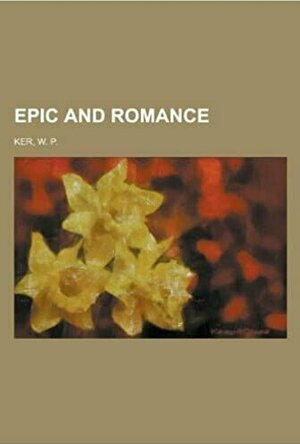
Epic and Romance: Essays on Medieval Literature
Book
Excerpt: ...the effect of the romantic interludes in Gisli, which is perhaps the most tragic of all...
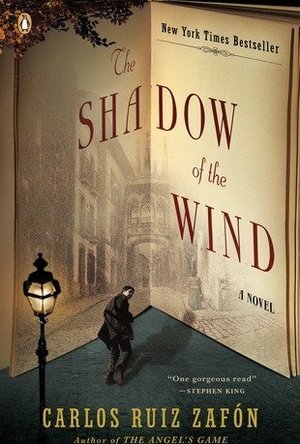
Shadows of the Wind
Book
The international literary sensation, about a boy's quest through the secrets and shadows of postwar...
Amy (7 KP) rated Goddess of Troy in Books
Jan 17, 2018 (Updated Jan 17, 2018)
A brilliant idea, occasionally well done in her other novels...not unfortunately for this one.
The problem begins with the plot the goddesses send the women back to end the war...okay, but why not do it themselves? The flimsy excuses just don't hold up. The plot is weakly manipulated and transparently executed to make the neccessity of the modern women going back possible.
Problem 2-is the blatant racism of making the indipendant modern black woman into a white slave girl.
Problem 3- problematic sex scenes which read as thinly disguised rape scenes. A male character is hypnotises and the main female character has sex with him....this is made okay by him giving her consent afterwards. Which is not how consent works. This book being intended for young women just becoming sexual is at best concerning and at most incredibly damaging whilst promoting male rape under the guise of female empowerment.
The dialogue when more old fashioned from the warriors is charming and engaging...from the modern women we are forced to deal with censored cringy curse words, way too much teenage level gossip, and not a smidge of maturity in sight...from grown ass women.
For thirty plus successful women the character profiles should have engaged and fascinated, unfortunately those profiles were ignored during in-story application and replaced with twittering, childish teens who giggle over the word penis and lose their minds over the most vacuous and senseless things.
The plot centres around a boring, romance, and changes the original relationship of Achilles and Patroclus from its canonical implied romance to one of cousins...this at best is a misguided deviation from the canonical Iliad relationship they had.
It could easily be read as a blatant attack and hideous misuse of the original content, that could given the sheer overwhelming heteronormaty we are forced to endure be at its worst an erasure of rare LGBT representation from historical content.
The relationships are forced, and their happy endings so saccharine it hurts to read.
The siege of Troy is horrifically rewritten to make the main female lead the deciding factor that ensured victory and removed nearly all canonical battle events.
Throughout the novel not much happens, and by time something does you just want the novel over with.
It doesn't read as mythology inspired, the myths and characters are used as cheap prop and staging whilst removing the deep themes, and messages that ensured their endurance throughout time.
The vocabulary is below pre-teen level, the grammar is sub-par, and the pacing and plotting absolutely abysmal.
How this book ever made it to print in this state is a large and curious mystery for me.
I cannot urge you to skip this book enough, Margaret George's 'Helen of Troy' is a far more valuable use of your time if you are in want of mythology inspired fantasy...and does so without annihilating the entire original stories.
